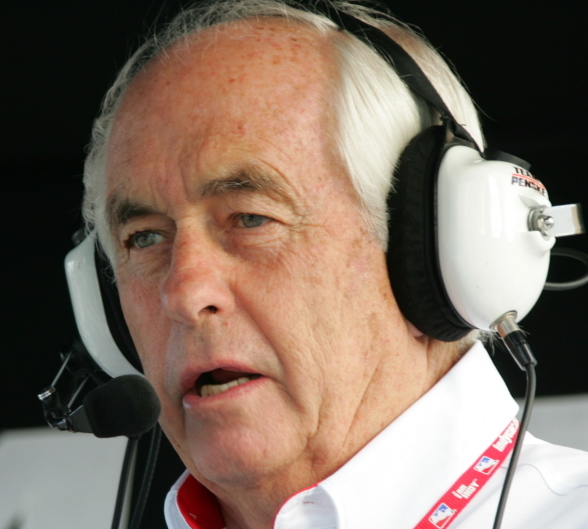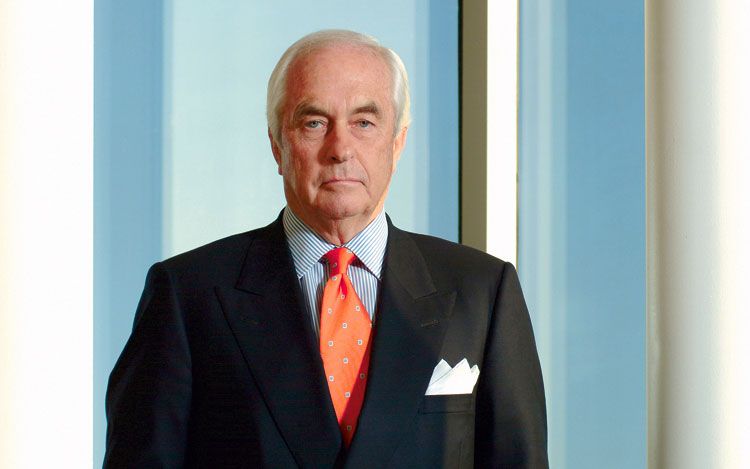There is only one person who can save IndyCar
 |
| There is only one man that can lead IndyCar back to #1 form of motorsports in the USA |
"We need a face," were the words uttered by 2004 Izod IndyCar Series champion Tony Kanaan about two weeks ago. The outgoing Brazilian was of course, referring to the current leadership vacancy in the world of IndyCar, and the uncertainty it is creating for the sport. While Mark Miles was named CEO of IndyCar's parent company Hulman and Company, six weeks ago, we have yet to learn exactly what role Miles will play. Nor do we know what role IMS CEO Jeff Belskus, IMS COO Doug Boles, or interim IndyCar Series COO Robby Greene will play with regard to IndyCar’s growth. Further, we will likely not know any of these things until Hulman and Co., concludes the ongoing internal review of their business.
Simply put, three months after the unceremonious dismissal of former INDYCAR CEO Randy Bernard, the direction of IndyCar going forward, and who exactly will be its "face," remains unclear. And with declining television ratings, difficulty attracting sponsors, and general uncertainty surrounding the direction of the sport, some like Kanaan, who sported sponsor-free side pods on his familiar #11 Dallara this past week during KV Racing Technology's 2013 launch in Baltimore, are understandably growing restless.
Now, given the transition some are urging patience, pointing to the internal review and Miles' impressive resume, which is in fact, impressive. Miles served a very successful stint with the ATP from 1990-2005, and was the Chairman for the wildly successful Super Bowl XLVI last year in Indianapolis. While I have criticized some of Miles' few public comments regarding IndyCar, I nor anyone else, can reasonably dispute his success in previous endeavors.
However, such optimism and pleas for patience overlook a myriad of pressing concerns. For one, they completely ignore the uncertainty surrounding the sport after a trying year that saw significant decline in television viewership, and persistent infighting, which reinforced the perception of inherent instability within IndyCar. Also, we still have no idea what role, or the extent of said role, Miles will have with regard to IndyCar. Last, and perhaps most important, Miles' proven track record by no means forecasts a successful tenure.
See, Andrew Craig, Randy Bernard, Bill Stokkan, Chris Pook, Dick Eidswick, John Frasco, Jim Melvin, John Caponigro, Steve Johnson Joe Heitzler, John Capels, Bobby Rahal, and a host of others have all served in leadership positions within Indy car racing over the past three decades. Some were racing people, others had backgrounds in promotion, and prior successful stints in sports entertainment type endeavors. Nearly, all boasted impressive credentials before taking their post as leaders within the sport. Further, many have been successful in endeavors since their tenures within Indy car racing ended.
However, none were able to successfully negotiate the sport's notoriously treacherous political landscape to shape Indy car racing in their, for lack of a better term, vision. Some were adept on the marketing/promotional side, yet struggled on the technical side. Others were racing guys who weren't adept on the business end. None were able to effectively assert themselves in the long term as the "face" of the sport.
Worse, considering the fact few, if any, have succeeded, the perception exists that the job itself is somehow inherently flawed. In other words, if no one has succeeded, is it reasonable to conclude no one can? Fair or unfair, that perception does exist, which is why the next "face" of IndyCar, cannot be just any face.
No, for IndyCar to thrive, its next leader must be someone clearly distinguished from those who have come before. An impressive resume in prior sports entertainment endeavors, or one within racing, is not enough. True or untrue, such an appointment simply forecasts more of the same. And IndyCar must avoid the "here we go again," perception.
Thus, the next leader of IndyCar will need a track record of success in not only racing and business, but arguably more. Remember, this person will have to do business with not just those within the IndyCar paddock, but manufacturers, promoters, racetrack operators, sponsors, and a variety of other constituents. For example, when a powerful racing figure such as Texas Motor Speedway President Eddie Gossage criticizes IndyCar, as he has done, this person will need more than his previous experience with Playboy or the SCCA to rely on.
When inevitable conflicts arise over spacer valves, as seems to happen about once every decade or so, this person must be as intelligent on the matter as those leading the rebellion. The person to lead IndyCar must be someone whose decisions will be not be questioned, but accepted unilaterally. Most of all, this person must bring credibility to IndyCar. Another leader, who is deemed to be somehow lacking in any regard, will not suffice.
Now, I'll concede this standard does not leave a large pool of candidates. Arguably, it produces just one.
 |
| Other than Bernie Ecclestone, Roger Penske is the only person capable of turning IndyCar back into a motorsports powerhouse. He was after all, instrumental in growing CART into a sport that dwarfed NASCAR |
Yes, the best thing Miles can do for IndyCar and his company is approach Roger Penske about becoming the next CEO/President/executive/leader of IndyCar. While Miles clearly boasts a resume that proves his ability to oversee a sports entertainment company, he does not possess the racing and automobile business acumen to be the "face," of IndyCar. Penske, and arguably only Penske, does.
To start, I'm going to assume the average AR1 reader is generally familiar with Penske's numerous racing accomplishments, and will not waste time outlining them. However, Penske's racing accomplishments in NASCAR, IndyCar, F1 and more tell only part of the story, as his success reaches nearly every aspect of the sport.
Whether its owning race teams, race tracks, promoting races, building cars, satisfying sponsors, being a sponsor, supplying race equipment, and more, Penske has an unquantifiable proven track record of success. His team, his name and the Penske brand are synonymous with an excellence and professionalism that transcend racing.
Also, Penske is instant credibility. Credibility is of course, important at all times, but essential in difficult times. Allow me to give you an example.
Last season, during the Penske-promoted Detroit race, the track surface came apart and the race had to be stopped. It was something of an embarrassment for IndyCar, as the paid audience was given a shorter than expected race. Further, the week after a scintillating Indy 500, IndyCar missed an opportunity to capitalize on momentum, as they had to red flag one of its few network broadcasts.
Predictably, there were many unhappy campers. Many noted IndyCar's proclivity to self-destruct. No one blamed Penske.
No, the promoter, guy who brought the race back to Detroit, the "face" of the Grand Prix as one publication referred to him, escaped unscathed. Sure, some expressed disappointment, but if anything, people mentioned how instrumental Penske was in bringing racing back to the down on its luck city.
The race, while not perfect, was seen as a step in the city returning to prominence. What may have been a PR disaster for both IndyCar and the race, turned out to be a rather small incident. Further, the Detroit event will return in 2013 better than ever, as the promotion for the race has been very strong.
Yes, even when things are bad, people don't blame Penske. The Captain has decades of credibility and goodwill built up, and people are willing to forgive a misstep every now and again. Nowadays, that is a courtesy few are given, one IndyCar certainly does not enjoy.
But it is one Penske would bring. For example, if a race promoter is disgruntled, it is much less likely they will criticize Penske, and in turn, IndyCar. I imagine Gossage would likely be less likely to slam IndyCar if it was Penske he had to do business with. In short, The Captain is instant credibility.
Still, even that instant credibility is not the most important element Penske would bring to IndyCar. Rather, it is his unquantifiable resume of success and connections within the automotive industry.
 |
| Penske the businessman is as successful on the race track as he is in any corporate boardroom |
The Captain, of course, has enjoyed racing success with numerous manufacturers such as Chevrolet, Dodge, Mercedes-Benz, Toyota, Honda, Porsche, and others. But those successful partnerships only tell part of the story, and relatively speaking are a very small part of the relationship Penske enjoys with the automotive world’s giants.
In fact, Penske Automotive Group, the automotive dealership enterprise represents 42 different automotive brands, throughout its 327 dealerships and collision repair centers worldwide. Yes, you name a manufacturer, and its likely Penske has a relationship. IndyCar, desperately in need of greater manufacturer involvement, would benefit immeasurably from Penske’s relationships with the automotive heavyweights.
In fact, one could argue that to be an automotive heavyweight, you need to be connected to Penske, rather than the other way around.
Plus, his automotive interests don’t end there. Diesel engine companies, a race engine company, truck leasing, lighting equipment and automotive equipment businesses are all part of his portfolio. And believe me, I have left many parts uncovered.
Simply put, Penske’s success and prominence in the both racing and the automotive industry is unparalleled.
Of course, no reasonable piece advocating Penske becoming the leader of IndyCar, would not ask the question, whether such a scenario was even possible. Given the numerous business endeavors outlined above, it does not seem as though Penske has a surplus of free time. And would he even want this role?
That is hard to say, and the immediate answer, I think would be no. Although he looks tremendous, and those close to him say he is as energetic as ever, Penske will be 76 years old next month. As previously mentioned, he has a host of commitments already on his docket, and I wonder whether the potential financial incentives would make it worth The Captain's time.
However, Penske has made a number of comments lately that indicate he is frustrated with the direction of IndyCar. He noted during the Baltimore weekend that too big a deal was made over the price of parts, as the series had much bigger issues. He noted his frustration with IndyCar and IMS in the aftermath of Bernard's dismissal, saying the Hulman board of directors fired Bernard with no plan in place. His offer to Tony Stewart to drive in the Indy 500, could be construed as Penske trying to get IndyCar some press, something he possibly believes the sport is not doing an adequate good enough job of.
Also, no one questions Penske's passion for IndyCar. And it has to eat at him somewhat, to see the sport in such a depraved state. I wonder if this is an angle Miles could play in appealing to him?
If somehow, Miles could appeal to The Captain, there would be issues to sort out. For example, Penske could not run IndyCar and still manage his team, something he really enjoys doing – winning on the race track and beating Chip Ganassi. Also, I imagine his numerous business interests would in some way create conflicts of interests. Further, Penske would need a few lieutenant/vice president types underneath him.
But lets not let small matters get in the way of a very large one. IndyCar needs a new direction, and Roger Penske is the perfect candidate to provide that. While no one knows for sure whether Penske would take on such a job, the possibility must be explored. Penske's record of accomplishment, credibility within racing, and success in business are simply unmatched.
In closing, Tony Kanaan is correct. IndyCar desperately needs a face. But it cannot just be any face. IndyCar cannot repeat mistakes of the past, and that is where Penske comes.
I only hope both he and Mark Miles are listening.
Brian Carroccio is an IndyCar columnist for AutoRacing1.com. He grew up around racing as the son of a longtime SCCA crewman. His first vivid memory of Indy car racing is Danny Sullivan’s 1985 “Spin and Win," at Indianapolis. Brian lives in Rockville, MD.
As a lifelong fan of the Washington Redskins his favorite colors are burgundy and gold. He is also a passionate supporter of Manchester United.
For witty insight on our beloved sport of Indy car racing, and thoughts on other topics of interest to Brian, you can follow him on Twitter @BrianC_AR1.
